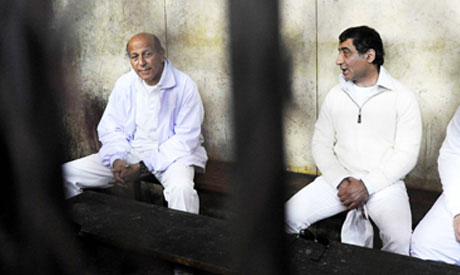 Egypt has discovered a number of properties belonging to former Mubarak regime figures that the UK government failed to freeze under EU regulations, Ahram Online has found.
Egypt has discovered a number of properties belonging to former Mubarak regime figures that the UK government failed to freeze under EU regulations, Ahram Online has found.
Ahram Online has seen documents showing that the properties are located in very expensive residential and business areas in London.
“These properties are worth tens of millions of British pounds. We have reasonable evidence suggesting that they belong to some of 19 persons on the list whose assets the UK has confirmed freezing,” an Egyptian source told Ahram Online.
On 21 March 2011, the EU issued a regulation ordering EU member states to freeze the assets of 19 Egyptians on suspicion of pilfering Egyptian public funds.
The figures included toppled president Hosni Mubarak, member of his immediate family, and some of his political entourage. The UK Treasury Assets Freezing Unit has already earmarked about £85 million of their assets in the UK.
Egyptian authorities complain that, after two years of the assets having been frozen, UK counterparts remain reluctant to provide information about the assets in question.
However, Ahram Online understands that the Egyptian Ministry of Justice received information confirming that these assets belonged to eight persons on the target list. These are: Gamal Mubarak, younger son of the former president; Ahmed Ezz, former leader of Egypt's now-defunct National Democratic Party and two of his wives; Rashid Mohamed Rashid, former deputy prime minister and former trade and industry minister; Habib El-Adly, former interior minister; and Ahmed El-Maghrabi, former housing minister, and his wife.
“Egypt is using a Europe-based private finance intelligence agency to collect information and evidence about stolen Egyptian funds in all of Europe,” one Egyptian source told Ahram Online.
The Egyptian justice ministry’s Asset Recovery Judicial Committee (ARJC) refused to comment on the information. However, Ahmed Saad, senior state counsellor and ARJC member, said his committee was leaving no stone unturned to get the information needed to follow correct legal procedures to recover stolen monies.
Saad, nonetheless, complained of the lack of resources needed to follow up the issue.
“Our rivals have huge fortunes, so they hire an army of expert solicitors, while we do not have the same level of financial and human resources,” Saad said, adding that concrete results would take time.
“In terms of our stolen assets in the UK, the level of the UK authorities’ cooperation with us is still very much less than expected,” Saad said, responding to a question about the UK's current position.
"We hope that, after the recent visit to Egypt by Jeremy Browne, the UK minister for crime prevention, the UK will appreciate the urgency and sensitivity of the asset recovery issue and change its policy," Saad added.
Browne leads a UK task force assigned by UK Prime Minister David Cameron to help ‘Arab Spring’ countries recover stolen monies.
Saad hinted that it was expected that UK authorities would be more helpful in coming months.
UK officials told Ahram Online that their government was doing its best, according to domestic law, to help expedite the repatriation of stolen assets to Egypt. They refused to confirm or deny, however, whether British authorities had already received a number of Mutual Legal Assistance (MLA) requests from Egypt.
However, Ahram Online can confirm that London received more than 25 MLAs. The UK Central Authority reportedly turned down more than half of these, and is still looking into the remainder.
MLAs are a formal mechanism by which Egypt can request UK assistance in obtaining evidence located in the UK to assist in criminal investigations or proceedings against former regime officials and figures suspected of corruption and theft of public funds.
Egyptian flagship state daily Al-Ahram will publish an exclusive report on the recovery of Egyptian assets on Monday, 18 February.



